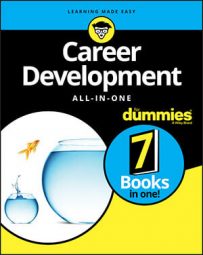Establishing a solid system you can replicate is a key to succeeding in managing your time. Systems, standards, strategies, and rules protect your time and allow you to use it to your best advantage. These skills are applicable whether you’re the company CEO, a salesperson, a midlevel manager, an executive, or an administrative assistant. No matter your work or your work environment, time management is of universal value.
Schedule your time and create a routine
Sticking to a time-scheduling system can’t guarantee the return of your long-lost vacation days, but by regularly tracking your meetings, appointments, and obligations, you reduce your odds of double-booking and scheduling appointments too close. And by planning, you make sure to make time for all the important things first.You might want to try the time-blocking system, in which you put your priorities first (starting with routines and then moving to individual tasks/activities) before scheduling commitments and activities of lesser importance.
Such time-management techniques are just as applicable to the other spheres of your life. There’s a reason why you are advised to plug in your personal commitments first when filling in your time-blocking schedule: Your personal time is worthy of protection, and you can further enhance that time by applying time-management principles.Organize your surroundings to effectively manage your time
A good system of time management requires order and organization. Creating order in your world saves time wasted searching for stuff, from important phone numbers to your shoes. But even more, physical order creates mental order and helps you perform more efficiently.Yes, your workspace should be clean and orderly, with papers and folders arranged in some sort of sequence that makes items easy and quick to find. Your desk should be cleared off, providing space to work. Your important tools — phone, computer — ought to be within reach. And your day planner, of course, should be at your fingertips. Your briefcase, your meeting planner, even your closet has an effect on your time-management success.

